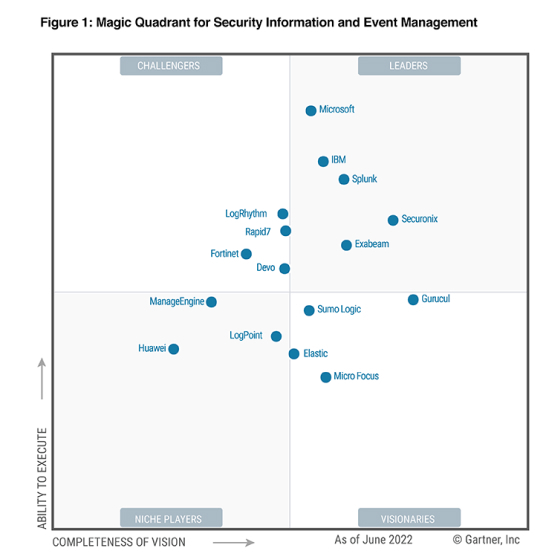
Get the report
MoreOperational Intelligence is the application of data analysis techniques to data that is generated or collected in real-time through an organization's IT infrastructure. The purpose of Operational Intelligence is to gather data from throughout the IT system, analyze it in real-time (as it is created or collected), and present it to IT operators in a simplified format that enables them to take rapid action and make decisions based on the results.
Understanding the differences between operational and business intelligence is crucial to contextualizing and taking action on the information and insights provided by your analytics tool suite. While operational and business intelligence are both used to drive action and inform decision-making, key differences set apart these two areas of analysis.
Business intelligence maintains a relatively narrow focus with an emphasis on finding efficiencies that optimize for revenue or profitability. Business Intelligence typically means taking a snapshot of data during a defined time period in the past and reviewing it to understand how the organization could achieve better success in the future.
In contrast, the focus of Operational Intelligence is on systems, rather than profit. Operational Intelligence uses real-time data collection and analysis to discover trends or problems that could affect IT systems' operation and help front-line workers make the best decisions about how to deal with those issues.
The differences between operational and business intelligence can be summarized as follows:
Operational Intelligence has been described as immediate business intelligence gleaned from ongoing operational functions, a definition that speaks to the real-time nature of data collection and focuses on operational functions that characterize Operational Intelligence in a business setting. While business intelligence is often executed within a specified data silo, operational intelligence helps organizations break down data silos to discover trends and patterns of activity within complex and disparate systems.
Operational Intelligence can be achieved through the implementation of several technologies that work together, or with a singular tool or application that provides several functionalities. To understand the nature of these tools, let's review the technological capabilities that underlie organizational efforts toward real-time Operational Intelligence.
Real-time monitoring and situation detection
Businesses that wish to leverage Operational Intelligence must be able to monitor network and server event logs in real time. In this case, real-time does not necessarily mean "instant," it means that the delay between information creation and availability for decision-making is reduced to seconds or less. With this constant stream of information, IT analysts can access the most up-to-date information about what is happening on the network.
Event correlation
One of the core benefits of Operational Intelligence as a data analysis technique is that it helps to break down information silos that exist within the business. Imagine an IT organization that manages twenty web-deployed applications. When an IT incident occurs, each of these twenty data sources must be individually investigated to assess whether it is functioning normally.
Without event correlation, the data here exists in silos, so each source must be investigated separately. Event correlation software tools break down these data silos by pulling together data from multiple sources and enabling a human or computer to investigate the data all at once instead of separately.
Dashboards
Today's sophisticated Operational Intelligence systems pull together data from myriad sources, sometimes processing millions of data points or more each day. Visual dashboards are used to make that data presentable and actionable for front-line analysts and IT staff. Dashboards can be configured to display data in many different ways and can be customized based on the specific job role of the person using the dashboard or the needs of the business.
Complex Event Processing
Complex event processing represents the data analysis component of Operational Intelligence. Today's leading providers of Operational Intelligence solutions are leveraging advanced technologies like artificial intelligence and machine learning to increase the effectiveness and efficiency of data analysis for Operational Intelligence and make it even easier for organizations to glean actionable insights from computer-generated and user-generated data.
Operational intelligence combines real-time network activity and event monitoring with sophisticated data analytics tools and dashboards to drive effective decision-making with respect to IT operations. When combined effectively, these functions can help your organization:
As Information Technology (IT) systems have become increasingly complex and disparate over the past several decades, it has become more difficult for IT operators and analysts to quickly identify IT issues and implement resolutions in a timely way that satisfies service-level agreements. In the past, IT operators might have been able to investigate issues manually and resolve issues fairly quickly. In today's IT environment, characterized by an increasing number of web-based applications in a hybrid cloud environment, the sheer volume of data and a variety of data sources has made manual investigations highly inefficient.
Sumo Logic delivers a comprehensive solution for Operational Intelligence and Analytics. With Sumo Logic, organizations of all sizes can leverage real-time monitoring to detect customer-impacting issues with ease, reduce application and system downtime with more effective and streamlined troubleshooting and optimize the experience of their customers using real-time insights and reports. Features like machine learning, advanced threat intelligence and extensive third-party integrations make Sumo Logic an industry leader in Operational Intelligence and analytics for business.
Reduce downtime and move from reactive to proactive monitoring.